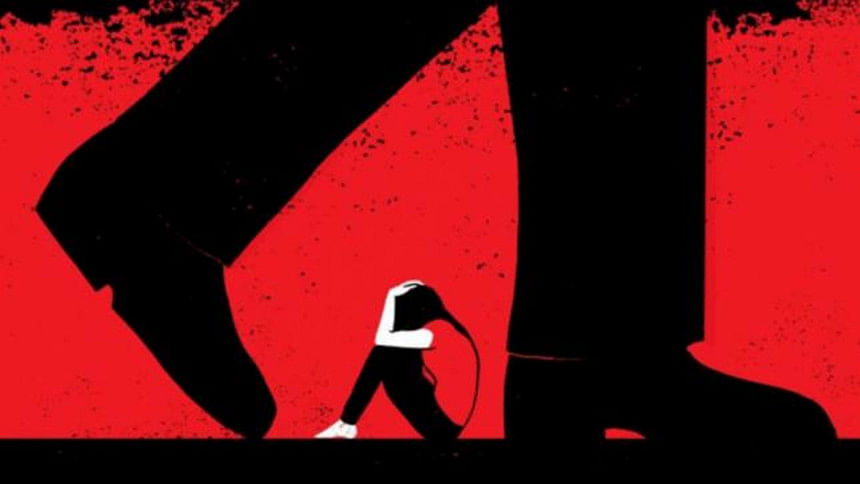What good is the DSA if it can’t protect women from online harassment?

There is little I can add to what has already been said about the shaming, blaming and moral policing of women on the internet. Time and again, people have proved that it does not matter what role a woman takes on when she makes the news; what matters is that she is a woman, and that makes her deserving of hatred. We can look at the following three examples and attempt to analyse different instances where the law and prevailing social values interacted in different ways, while the women took on the role of victim, witness and perpetrator.
Let us begin with a much talked-about incident concerning media personality and development worker Rafiath Rashid Mithila. Her personal photographs were leaked without her consent, resulting in a swarm of hatred towards the previously well-loved celebrity. At the peak of this "scandal", there was little more on my social media than people offering their opinions on Mithila, and very rarely did I see people acknowledge that she was, in fact, the victim here.
"Sure, it's illegal to leak photos, but it isn't immoral to put this bad woman in her place," has been the common consensus on her ever since. It has been around nine months since the incident took place, and I could not find any reports of police taking action against the people who spewed one hateful, dirty comment after another on Mithila's social media. Before writing this piece, I took another look at her Facebook page, and it is still filled with men (and a few women who have internalised the patriarchy) putting Mithila in her place.
I find it astounding that neither Mithila's impressive educational and professional background, nor her reputation as a talented media personality, could hold a candle to the swarms of lesser men who have decided she is canceled. They do not hesitate to use the vilest of language, and nothing but the threat of a case under the Digital Security Act (DSA)seems to get to them.
Except, what good is the Digital Security Act when it is selectively enforced—only when it is convenient for those in power? Shipra Debnath, the already traumatised companion of the slain Major (retired) Sinha, was dragged on social media by two high-ranking police officials. With a dubious narcotics case filed against her and her belonging to a minority group in Bangladesh, men on the internet had a field day until she declared she would file a case against this attempt at character assassination.
Then the OC of Cox's Bazar police station refused to take her case against the two police superintendents who had publicly shared her photos on Facebook without her consent. The police officials and the people in their comment sections attempted to discredit Shipra as a witness by pointing out that she engages in allegedly immoral acts of smoking and drinking. Mind you, neither act is illegal. It is funny how the same things that make men manlier, somehow become immoral when a woman does them.
Both of these cases are a testament to the entitlement men feel over women. They feel entitled to have an opinion on the way a woman dresses, the things she chooses to do, and the things she chooses to be. It is difficult to have a conversation with these men because they truly believe that women shouldn't have agency over anything, neither their bodies nor their lives. Women like Mithila are successful because the men have "allowed" it, believes the small-town salesman who uses both vile words and the name of his god (that is equally disapproving of her success, the man is sure of it) in the same comment to demean Mithila.
All of this when women aren't even involved in crime. So what happens when they make the news for something both illegal and immoral? The supremely photogenic Dr Sabrina Arif Chowdhury was arrested for issuing fake Covid-19 reports from her organisation JKG Healthcare, and the masses rejoiced at the sight of a conventionally attractive woman in handcuffs. This time, when they picked apart the way Dr Sabrina dresses and carries herself, there was no fear. There was no limit to how vile they can get—after all, she's a criminal. She can't threaten people with the DSA when they upload the 563rd "hot video" with her face edited on top of borderline pornographic footage. She might have been arrested for the crime of faking certificates, but her original sin was being a woman.
In reality, I doubt that any woman can threaten a harasser with the Digital Security Act. This Act doesn't exist to protect the vulnerable, it exists to shut the masses up when they speak against those in power, as evident from the Cox's Bazar OC's refusal to take Shipra's case.
I would offer suggestions on what can be done to make things better for women on the internet, but I have none. The law does not work, and neither does civil conversation. Men use religion and social values as excuses for hatred against the smallest of things a woman does, refusing to understand that not everyone subscribes to the same set of beliefs. They find it impossible to simply coexist with people who are of a different gender or religion or community or ethnicity, interpreting everything as a threat against their [bigoted] identity.
Going through comments on social media gives me anxiety about the future of women in this country. I am sure the men who use horribly graphic words in the comment section wouldn't shy away from forcefully exerting their unearned power over women in real life. Facebook isn't anonymous, yet that doesn't stop anyone. Law enforcers themselves have become part of the problem.
I'm just left here wondering how much more women will have to keep paying for their inherently "criminal" existence in the eyes of the patriarchy.
Aanila Kishwar Tarannum has spent most of her youth writing about the youth (and other things) for The Daily Star.
Email: [email protected]

 For all latest news, follow The Daily Star's Google News channel.
For all latest news, follow The Daily Star's Google News channel. 



Comments